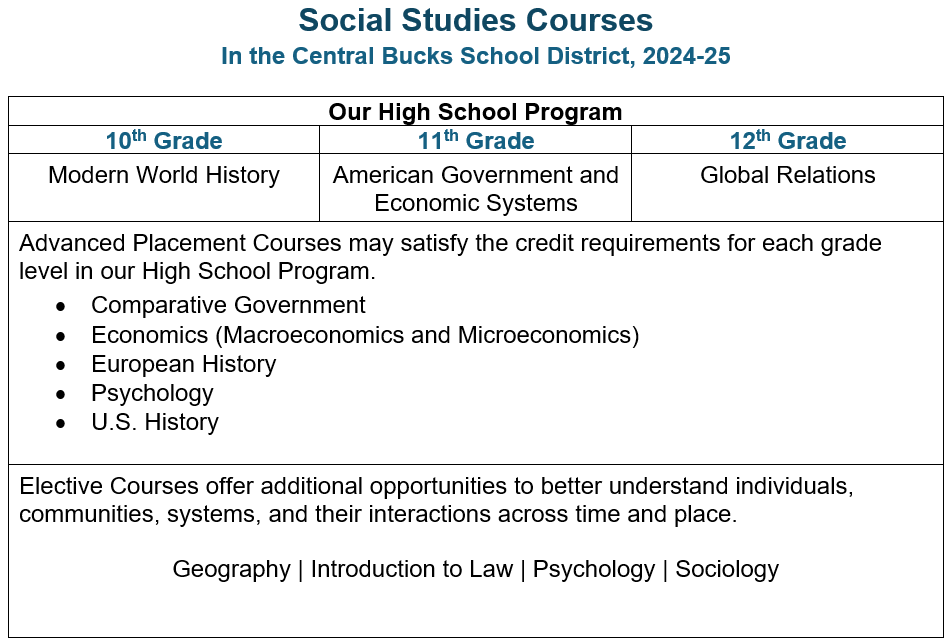Social Studies
Page Navigation
-
High School - Grades 10-12

Our High School Program continues the interdisciplinary study of History and the Social Sciences. Students complete a full-credit Social Studies course in each year of their high school experience.
Students complete the History portion of our scope and sequence in Tenth Grade with a Modern World History course. There, students examine the story of peoples in the Western and non-Western world from approximately 1450 to the present, studying geopolitics, political systems, social and cultural change, and economic trends. Eleventh Grade students engage in learning about the social sciences in American Government and Economic Systems. AGES puts students on a path toward becoming informed, effective decision makers as well as active participants in American civic life. The course acquaints them with founding principles, processes, and policymaking in civics and economics. Twelfth Grade students explore the world in which we live in Global Relations, a course studying how countries relate to one another, how they work together, and how they sometimes conflict in our world today. A major focus of the course is the impact of international issues on the formulation of American foreign policy. Each of these courses are offered at the Academic and Honors levels.
Certain Advanced Placement courses may satisfy students' grade-level credit requirements in Social Studies. AP European History, AP United States History, and AP Psychology enable in-depth college-level courses for our sophomore, junior, and senior students, respectively. AP Comparative Government and two AP Economics courses (Macroeconomics and Microeconomics) are available to our eleventh and twelfth graders. Consult the Program of Studies to see which courses satisfy grade-level graduation credits.
Social Studies Electives offer our students additional opportunities to explore fields in the Social Sciences in greater depth than our required sequence may allow. Each elective is a 9-week, 0.5-credit course open to all high school students.
Geography - What are the patterns that explain why people live where they live? What features distinguish different regions in our world? What impact do people have on the land, and what impact does the land have on people? These are questions that this course answers through a study of human and physical geography.
Introduction to the Law – What are my legal rights and responsibilities as a citizen in the United States as a juvenile or as an adult in society? What legal structures and procedures govern and protect me? Introduction to the Law is designed to help students answer these questions by conducting a thorough examination of the political and legal ideals and practices of this country.
Psychology – This course introduces students to the factors affecting human behavior and the ideas of the more prominent psychologists. Stages of human development, learning, perception, personality, and the psychological basis of behavior are among the topics investigated. Through readings, discussion, viewing, and experimentation, students achieve a better understanding of human behavior.
Sociology – Sociology will enable students to better understand the relationships and influences of social groups upon the individual. The socialization process, social stratification, deviance, social institutions, and cultural change are among the topics explored. A variety of sociological perspectives will be applied throughout this course in order to enable students to analyze social behavior.
The required and elective courses in our high school offer our students an education in Social Studies that is both well-rounded and deep. We are proud of the opportunity we have to equip our graduates with the tools to meaningfully engage in civic life.

